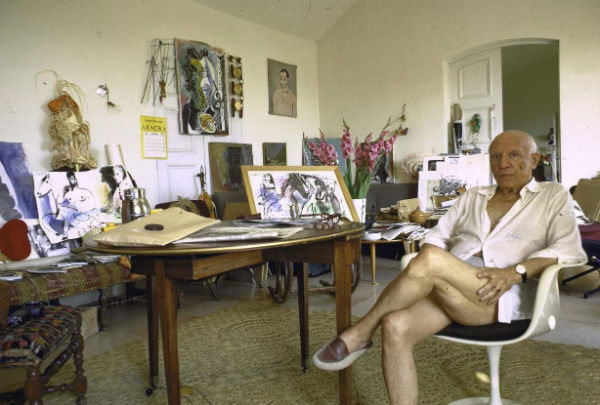Art & Exhibitions
France May Love Picasso Now, But It Didn’t Always

Photo: Gjon Mili for LIFE via Modern Design

Lorena Muñoz-Alonso

The Picasso Museum in Paris finally opened its doors this past Saturday after a seemingly never-ending and eventful five-year overhaul (see “Picasso Museum Reopens, Late and Over Budget”). The opening date was set to October 25 to coincide with Picasso’s birthday.
The inaugural ceremony was attended by President François Hollande, who, according to Terra, gave a speech in which he said: “Pablo Picasso, the Spaniard, the republican, the communist, is France’s pride.”
Picasso was born in Málaga (Spain), in 1881, but lived most of his adult life in France. When he died in 1973, France honored the artist with the museum that carries his name, which is located in the historic Le Marais district.
Hollande’s gushing speech continues a tendency to claim Picasso as a bona fide French artist. But it’s been revealed that the French authorities weren’t so keen on Picasso all along.
In 2003, the New York Times published an article revealing that Picasso was viewed with suspicion by the French police and intelligence services during his first four decades as a French resident. When he sought French nationality in 1940—possibly feeling insecure about the rise of Franco in Spain—he was turned down on the ground that he was an anarchist with communist tendencies.
Armand Israël, a Braque expert, told the New York Times: ”Years later, in the 1950s, [Picasso] was asked why he had never become French and he replied: ‘I am a Spaniard; I will die a Spaniard.’ Now we know why.”